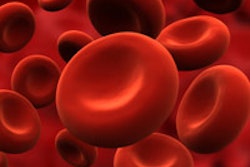Patients with metastatic or recurrent forms of head and neck cancer respond better to systemic treatments if their tumors arise in association with the human papillomavirus (HPV), according to new findings to be presented June 2 at the American Society of Clinical Oncology (ASCO) annual meeting in Chicago.
To study whether the same pattern appears in patients with metastatic and recurrent forms of the disease, researchers from Fox Chase Cancer Center examined tumor samples collected from more than 60 patients undergoing clinical trials.
They also tested samples for the presence of the enzyme excision repair cross-complementation group 1 (ERCC1), which is involved in DNA repair. Many cancer treatments work by damaging DNA, and one school of thought is that this enzyme may help tumors evade the effects of treatment. The researchers could only detect the high or low levels of ERCC1 in a smaller group of tumors, so caution that these results may be limited given the small numbers of patients studied.
According to, 55% of the people whose tumor samples tested positive for HPV responded to subsequent treatment in two clinical trials of chemotherapy combinations, compared with only 19% of those without signs of HPV. In addition, HPV-positive patients were more likely to live longer while on therapy, the researchers found.
Although only 11 of the more than 60 tested tumors had HPV, the significant difference in response rates suggests HPV status could have a significant impact on the results of clinical trials, according to study author Ranee Mehra, MD, an associate professor at Fox Chase. Disproportionate numbers of people with or without HPV could skew a trial's results, suggesting future clinical trials should stratify metastatic head and neck cancer patients according to whether or not they carry the virus, she added.
Studies of regimens for metastatic head and neck cancer are not stratified by patients with HPV, but the new study suggests that they should be.
Although it may seem counterintuitive that cancer patients with HPV fare better with treatment, previous studies have shown the same trend in patients who are newly diagnosed with head and neck cancer. It's possible that people who develop cancer as a result of HPV never smoked, so their tumors don't carry a host of mutations related to that exposure, according to Dr. Mehra.
In addition, many tobacco-related cancers contain a mutation in the tumor suppressor gene p53, while cancers that stem from HPV appear to often simply reduce the expression of p53, rather than mutating it, so the mechanism that suppresses tumors remains intact.



















